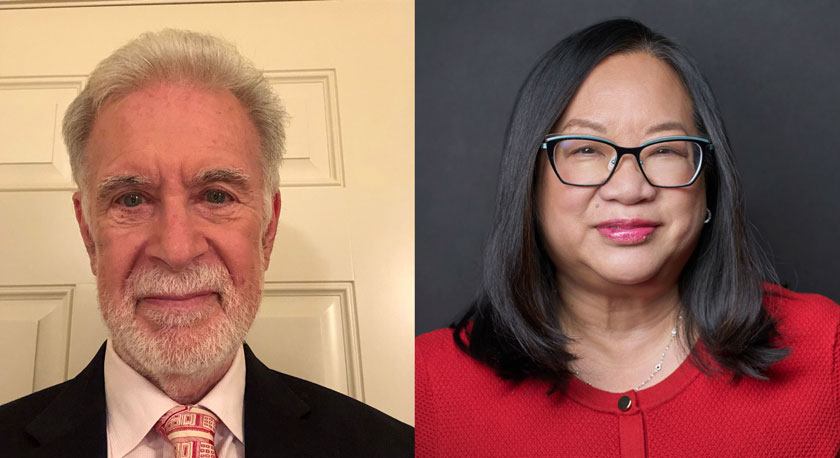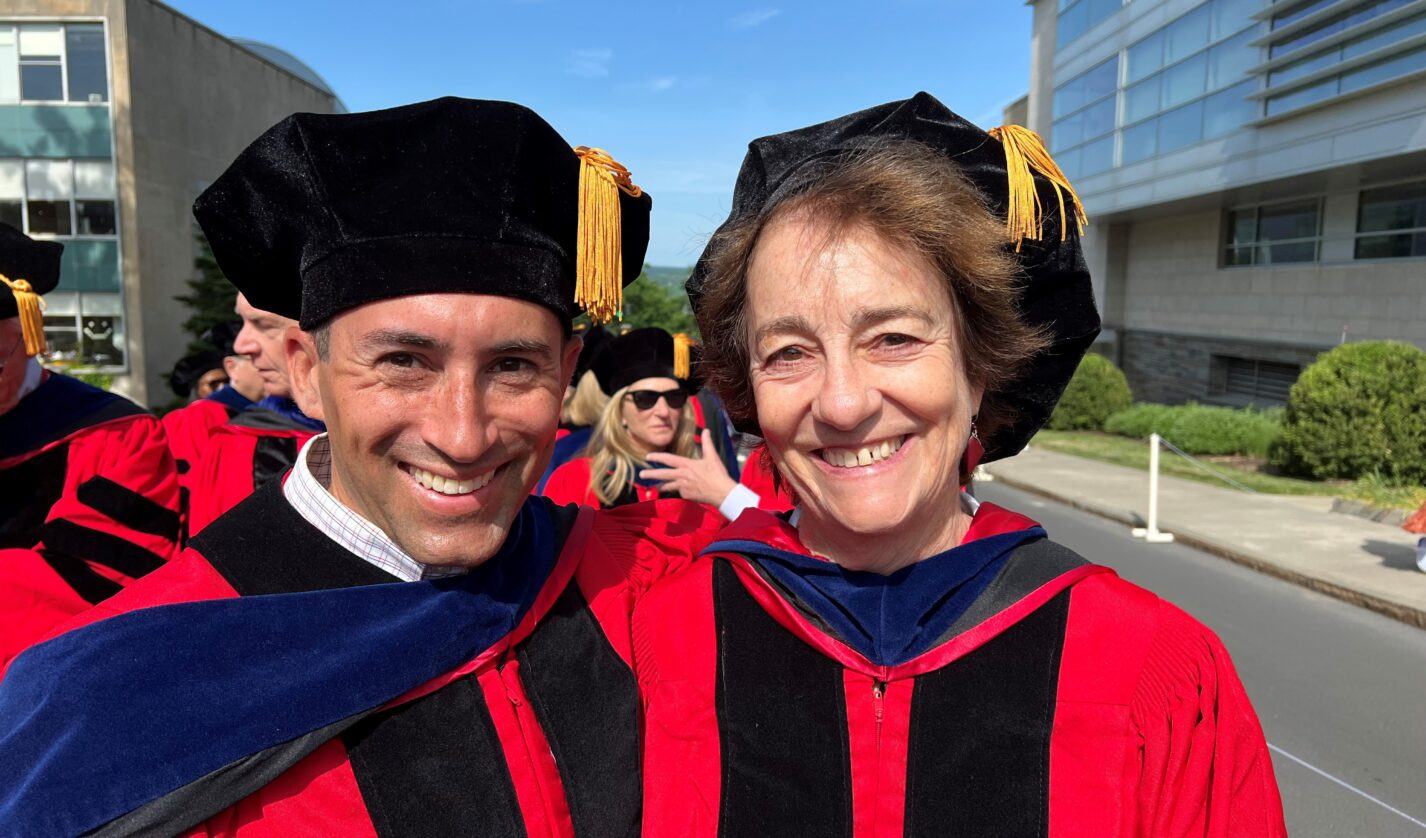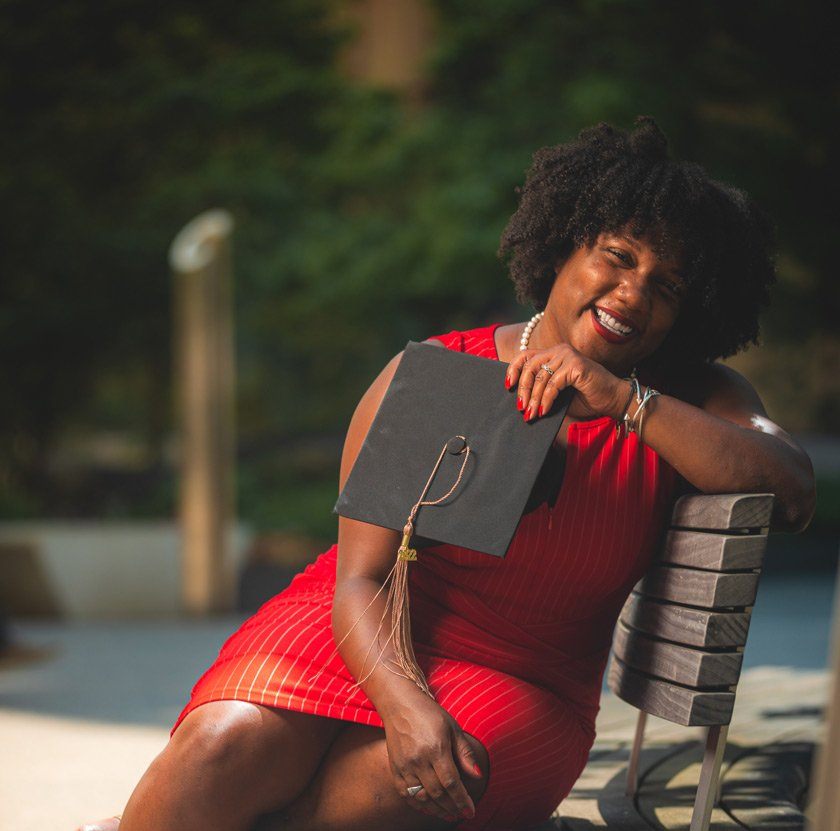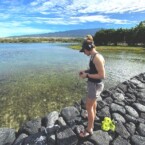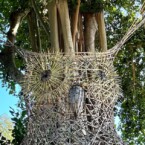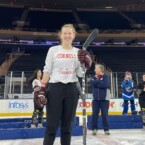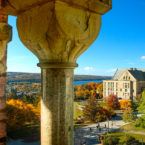Janelle Teng ’11 and Jeff Weiss ’79 sat down to talk about Janelle’s volunteer experience, and how the Cornell network has helped her feel connected to the university since graduation.
Janelle’s alumni activities and positions:
Ongoing:
- Cornell University Council, Administrative Board member
- Cornell Association of Class Officers (CACO) Vice-President of Communications
- Class of 2011, 10th Reunion Campaign Co-Chair
Past:
- Class of 2011 Secretary
- Cornell Asian Alumni Association (CAAA) Pan-Asian Banquet Co-Chair
Jeff Weiss ’79: Tell me about your volunteer experience.
Janelle Teng ’11: I feel like it’s easy to just kind of raise your hand and start meeting new people. Your Cornell network widens incredibly and it is really rewarding to be able to meet lots of different people with different interests who’ve done different things. Service to the university meant opening the door to meeting new people. I’ve found that everybody’s involved in something; everybody has something, and for me that’s Cornell. It was really easy to lean into and the more that I got involved, the more that I discovered that there was more that I could do.
When I became a class officer, I didn’t really know too much about the CACO board. I knew it existed but I certainly wasn’t thinking my goal is to be on the CACO board, but as you get exposed to these new roles and new organizations, I just found out there’re a lot more activities that I could be involved in.
I was already involved in my class. I was a vice president of the Senior Class Campaign when I was a senior. It felt like a very natural segue into being on class counsel. I wouldn’t say I was one of these super class officers. I know we all know them—people who can turn out a Reunion and really galvanize the class, you know. I just wanted to be kind of connected, I just wanted to be updated and around people in my class.
I felt like a dabbler. I felt like I was kind of on the peripheral. I wasn’t leading anything. I wasn’t the president or anything like that, but I felt involved and I felt the same way when I graduated. With the Cornell Asian Alumni Association (CAAA) I also felt like that’s something I can be a member of. Maybe I’m not the president, but I feel like I want to be kept updated and see where I can pitch in on a smaller level.
Pretty much right away, out of college, I felt like I was still involved in some level and still connected to the university but also just socially. I moved to New York City after graduation. I really felt like my social circle moved from Ithaca down to New York City all at the same time. Of course, there were exceptions, I had friends that moved to various parts of the country, or even out of the country, but for the most part, I felt like I had a really solid Cornell network and that’s part of what kept me engaged.
So, you’ve told me a little bit about your roles, and to be clear, you were your Senior Class Campaign officer, then on class council, then did you become an officer of your class and CAAA?
I was an officer in my class for the first five years out of college. I’m not currently a class officer because I kind of pivoted to focusing on CACO. Focusing my time on CACO has been really great.
For CAAA—they have an annual banquet. I had helped co-chair and that was a really great experience. It is a big signature event for them and that was really fun to put together and get to learn about things. I never did events in my day to day job. It was something that I got to learn some of the skills of when I was doing that.
In March, I facilitated a conversation for CAAA in regards to the devastating violence that we were seeing, including the Atlanta shooting. We just decided to get together and offer community space for our alumni of Asian descent. I got to facilitate that and that was really rewarding. I had never done a formal facilitation like that, in that kind of mood and atmosphere. That was a skill that I got to stretch. To offer myself back to the community felt really good. I’ve gotten so much out of my support network and my friends and my peers. It just felt really right to me to be able to offer myself and create space for others.
So, among other things, you’ve learned how to network, you’ve learned how to manage large events, and you’ve learned how to facilitate large complicated discussions.
Definitely. I think a lot of people, especially young alumni, think networking sounds awkward and uncomfortable. But to me it feels like you’re building something together. You’re in meetings tossing around opinions about Cornell programs and it feels natural to me.
You know, going up to somebody random at Cornell events, just introducing myself and trying to distill what I do down to 30 seconds, all of that is a very comfortable area to meet new people in a diverse array of industries
I think what I hear you saying is that volunteering is actually a really positive way to meet people, not just because it provides some context or structure when you’re meeting people.
Totally. I think the structure makes it really easy and also the foundation of common ground of both going to Cornell makes it easier to make small talk; to relate to one another.
Just the last week had dinner with somebody I’d never met before. He was Cornell Class of 2013 and one of the questions that I asked him was “what freshman dorm did you live in?” It’s a nice entry point.
It sounds like in the big place of Cornell you create a lot of communities. How would you describe your Cornell communities?
I arrived on campus as a freshman with very high expectations for my college experience and very little patience, so I was like we are going to hit the ground running, I’m going to make my best friends on day one. It does not always work like that for some people, and I know a married couple in Class of 2011 who met in orientation and are now married— so for some people, yeah, connection, but for others, myself included, it took more time and it took exploring the many, many different parts of campus in order to do that.
Luckily, I feel like I discovered in freshman year that the moments that I felt the best and the most engaged, the most curious on campus outside of my academics, were through student organizations and in the Asian American communities. I quickly joined two organizations that really set the tone for my undergrad experience. One of them was a social organization—a cultural social organization—Chinese Students Association, and the other one was Asian and Asian American focused on mental health and social wellbeing. Between those two organizations, I felt like I really found friends, I found community, I found a sense of purpose as well, and that was really important to me. I felt like I was contributing to creating community. Those communities kind of carried me through and really gave me a lot socially but also just confidence-wise and feeling like I knew my place and knew where home was for me. Like we said, campus is a big place, Cornell’s a huge community and so being able to have a kind of a home base, a social home base, was really nice.
And those become the people who you also lived with.
For one year. Funnily enough, I lived by myself sophomore through senior year and that suited me very well. I lived in Collegetown. I lived in the same apartment for three years after freshman year so that suited me very well, but yes, these people became my best friends and one of them became my husband—he’s Class of 2010.
I just saw one of my best friends, who was also in Chinese Students Association with me, two days ago and these are the foundation of my current social circle.
So, all of this you are describing, are ties that bind you to the university. It will be impossible to leave all that if because, it’s not a question of leaving or staying, it is just who you are.
That’s definitely how I feel about it. It’s just very natural to me but also that’s the kind of the emotional side of it. I feel this tie but also the logical or intellectual side of me recognizes that Cornell as an institution plays a powerful role, where part of our school is a state school public institution, and so we do have an obligation to New York state, and I think that Cornell can play a very important transformational role for students. I want to keep seeing Cornell play that role. From a purpose standpoint, that’s also what keeps me engaged. I like hearing the updates when President Pollack gives the State of the University Address in the fall. There’s always something that I learned that’s new; that’s impressive. There are always some contributions to community—to the research community; to the arts community. There’s always some contribution that I want to keep seeing from Cornell because I know Cornell can make a huge impact in the world.
Is there someone at Cornell and the alumni community who mentored you or inspired you or that you look up to?
Oh man, there are so many. Truly, I feel like I found a lot of strength in a lot of my mentors and the Asian American women at Cornell in the Cornell community have really made a huge impact on me, and so this is everybody—from Eugenie Shen ’78 who helped start the Asian Alumni Association and then through my generation as well and I’m thinking of Rebecca Lee ’08 and Linda Yu ’08 who helped lead the student movement to start an Asian and Asian American Center. I met them when I was a freshman on campus and they really inspired me to make the most out of my undergrad time.
I keep coming back to this theme of creating community. They created community, they welcomed me with open arms, taught me a lot. I think of the people who lead student organizations that I was a part of. I feel like I learned from them. There are so many and I feel like I learned so much about leadership, about service, about making space for others, and welcoming others. Those are all the people that I think of when I think of things that I’ve taken away from Cornell University. I feel like those lessons and that feeling of being welcomed by those people specifically is what I think about. I think that’s such an important reminder because you never know how your actions will impact another person by your just inviting somebody to one event or asking somebody to join you in a volunteer role. I think those things make a really big difference, at least they did for me, so that’s something that I try to carry through when I’m going about my volunteer activities.
If you were told you had to have a party this weekend for your closest Cornell friends, how many people would they be on the invite list?
Well, I can show you a photo from my wedding where we asked all the Cornell alumni to stand up and take a photo and I think there’s like 100 people.
It helps that my husband is also a Cornell-y and his friends became my friends. He was in Glee Club and Hangovers so a lot of those folks are now our very close friends and it’s just a Big Red family.
Were there professors or classes that made a huge impression on you?
Being an English major I always say was one of the best decisions I made. I didn’t know what I was doing but making the decision to be an English major was a great decision and I love the fact that I concentrated in American and American ethnic literature. That’s what I got to study for four years. Professor Shelley Wong is in the Asian American Studies program and I think I took every single one of her classes. That was that was a huge source of joy for me. Of course, I still procrastinated on all my essays and everything like that, I was a normal student, but it was such a joy for me to be able to take those classes and do that for four years.
What advice do you give to someone who wants to be more engaged with university?
There are so many different methods and routes of being involved. I think it’s really finding something that you enjoy, Cornell aside—what do you enjoy? Is that talking to young people? Is that reading books with your friends and a book club? Is that throwing events? Literally anything that you enjoy, there’s probably a space in the alumni community for it. If it’s highlighting some of your friends’ accomplishments there’s certainly room for that; if it’s participating in wine tastings there’s room for that.
There’s just so much—literally any hobby or interest that you have. I’ve expanded my interest that way as well. I don’t know that much about gardening and flowers but I’ll take a webinar from the Botanic Garden and learn more. There’s truly anything that you’re interested in. Be selfish about it. Decide what you want to do and then there’s somewhere in the Cornell ecosystem that there’s space for that. So that’s my advice: just get selfish and think about what you want. Just jump in and do it. Grab a buddy too. It’s a little more fun with a buddy. I joined Council going on three years now and my first TCAM weekend I had a buddy in Council and that made a big difference for me. It made it more fun and a little less daunting.

